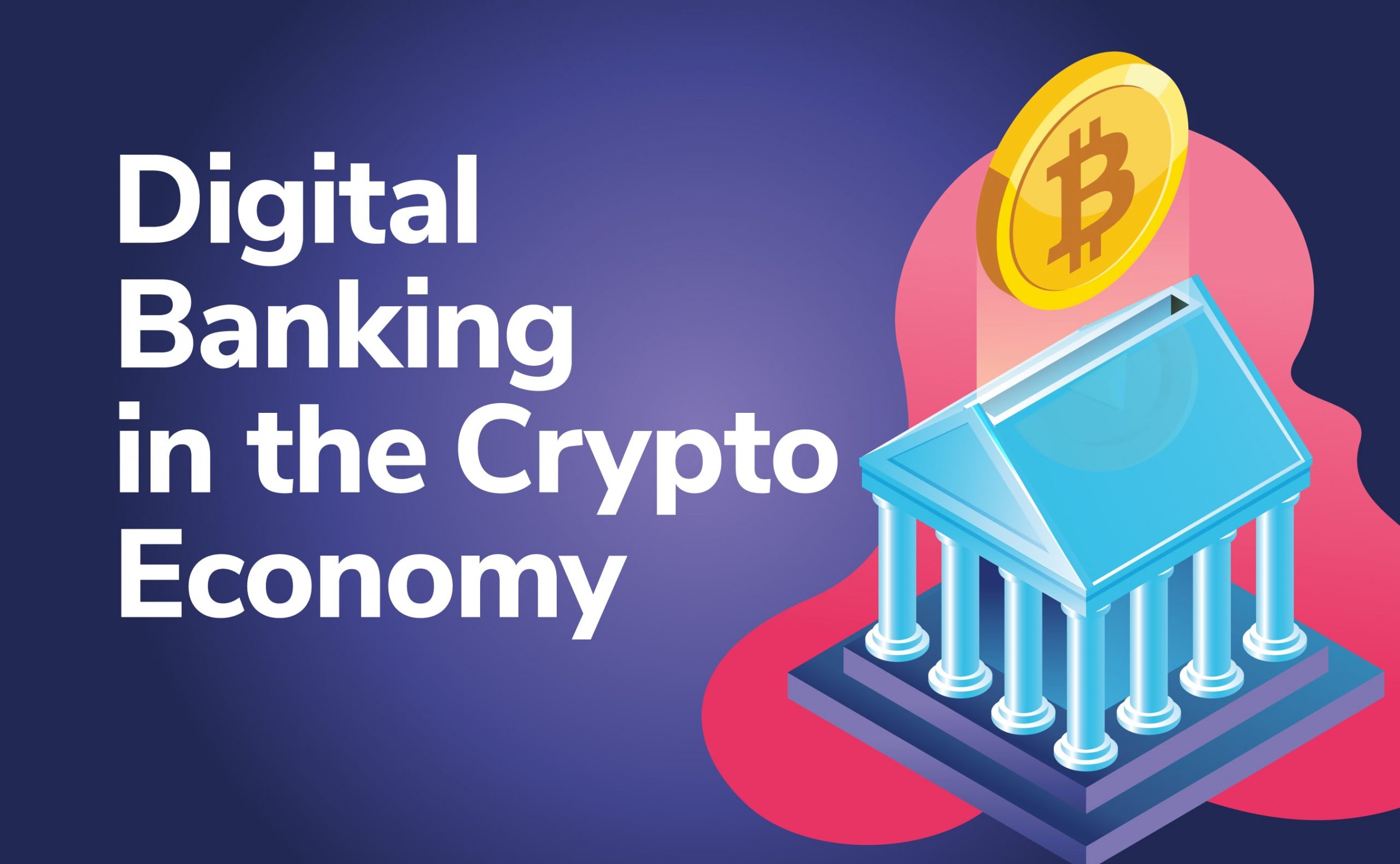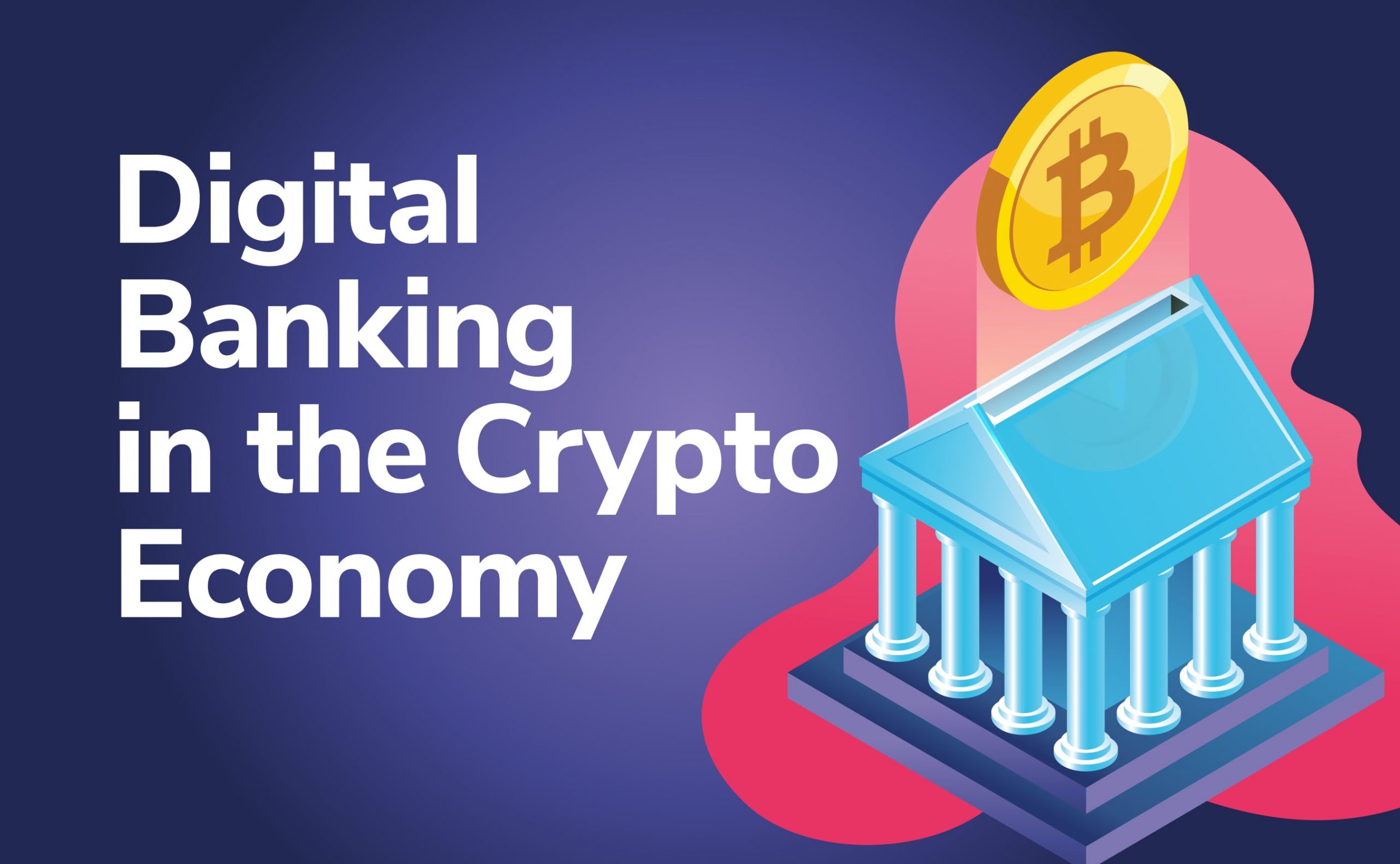
It is no secret that the nature of banking is changing. The past few decades have already brought a tidal wave of change for the banking sector. So far, the main driver for this change has been the shift towards digital banking. Although many banks have long resisted this change, it is now clear that the move towards digital banking for some or most of people’s financial needs is inevitable. With that said, however, digital banking in the new economy is now facing an upheaval that could be even bigger than digitalization; in cryptocurrencies, blockchain technology, and decentralization.
No article about digital banking in the new economy and the future of financial service providers is complete without mentioning cryptocurrencies. Cryptocurrencies have already made a big splash these past few years, and blockchain technology is redrawing the financial services map. Specifically, this post looks at how banks work with the new economy and crypto.
Anyone who doesn’t live under a rock will know that cryptocurrency is becoming increasingly commonplace. For example, late last year, PayPal announced Bitcoin integration, and other financial service providers seem set to follow suit. In fact, crypto adoption in payment services in 2021 is already surging. This makes it increasingly interesting to look at how digital banking is being affected by crypto. Furthermore, to look at how some banks provide a bridge between the old and new economy.
If you want to learn even more about blockchain technology and cryptocurrencies, be sure to enroll in Ivan on Tech Academy! Ivan on Tech Academy offers countless courses on everything you need to know to go from a cryptocurrency novice to a blockchain hero. Sign up today and join the biggest online blockchain academy and learn from the best in the business! Furthermore, if you are interested in a real-life example of how banks approach digital banking, take a look at SEBAversity!
What is Digital Banking?
So, what is digital banking? Traditionally, digital banking has been synonymous with online banking and web banking. Put simply, this refers to electronic bank management and payment systems that allow bank customers to organize their financial operations. For example, this can include obtaining bank statements, inspecting bank loans, conducting financial transactions, opening a line of financial inquiry, or any number of other operations.
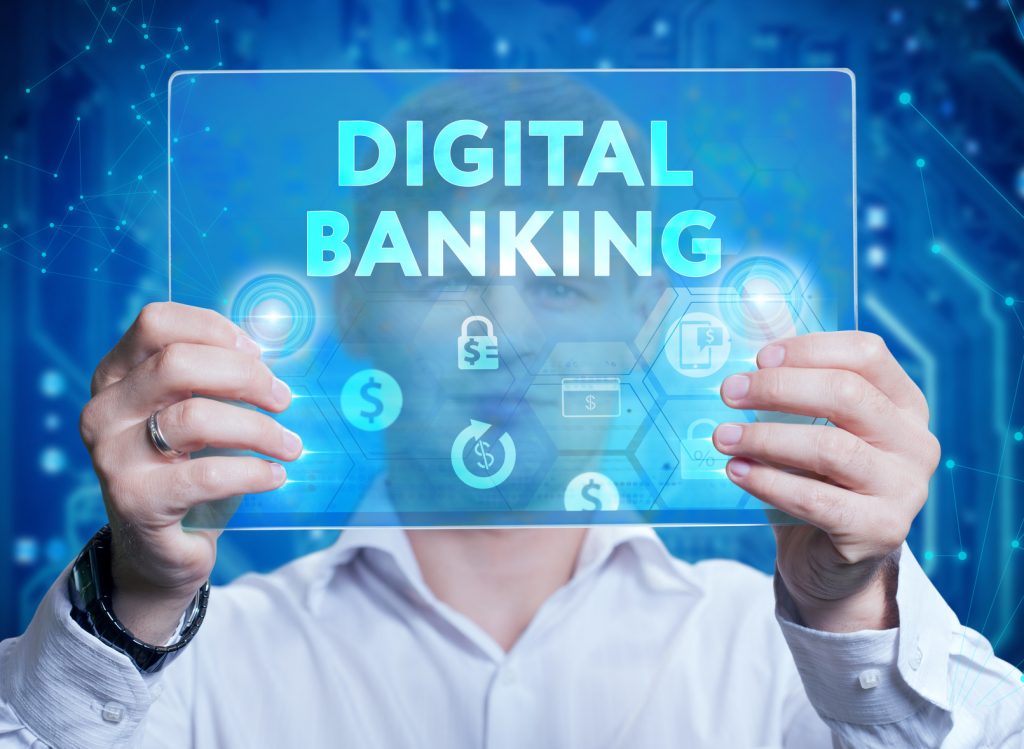
Since the emergence of digital banking, this has primarily referred to how a bank customer accesses that bank’s features online. Nevertheless, the recent emergence of blockchain technology, cryptocurrencies, and decentralized finance (DeFi) muddies the waters of what constitutes digital banking and what doesn’t. As such, this article takes a closer look at what digital banking is and how crypto banking can potentially change this.
How Has Digital Technology Transformed Digital Banking?
In order to properly examine how digital technology has transformed digital banking, we first need to look back. Specifically, we need to look at how banking was done before the advent of the internet. When people talk about the bank sector and fintech, they often refer to the ”digital transformation” that has taken place over the past few decades. Essentially, this refers to the ongoing process that is shifting the banking system towards digital counterparts.
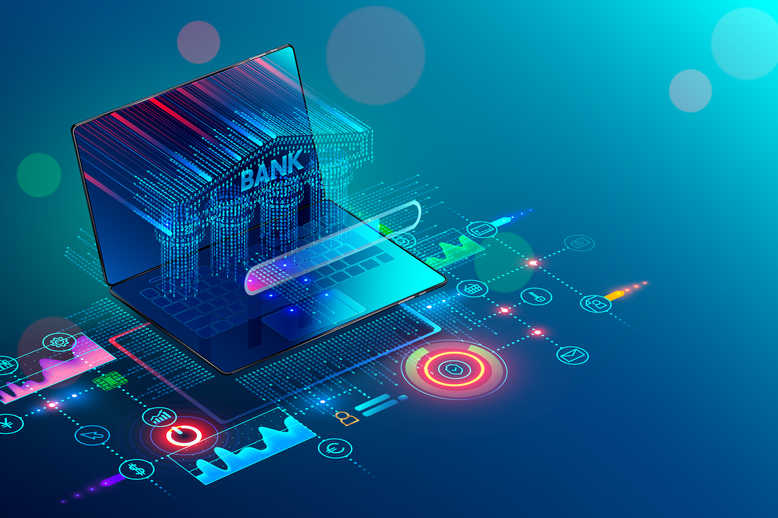
For example, this includes automating, optimizing, and digitizing various banking processes and improving data safety. It is worth noting that this has already led to monumental changes in the ways banks do business. The internet has been the driving factor behind a massive reshaping of the international banking system, arguably not seen since the original introduction of banks. In the wake of this, consumers have changed the way they interact with banks and what they expect from financial service providers. In extension, this also means that banks need to reconsider how they do business and how they provide services to consumers.
Perhaps most interestingly, this digital transformation shows no signs of slowing down. Those keeping an eye on blockchain technology will already be familiar with the concept of ”decentralized finance”, or ”DeFi”. We’ve previously written at length about the various challenges and opportunities that are presented by the burgeoning DeFi field. In short, DeFi can be seen as the latest expression of how digital technology is transforming digital banking and banking in general. One of the aims of decentralized finance is to provide financial services even to those who have traditionally lacked access to financial infrastructure or the ”unbanked”. In the face of rapid technological change, however, legacy actors can either choose to be reactive or proactive. SEBA is one of those proactive actors.
Digital Banking and Crypto
The shift towards digital banking has been a significant transition all on its own. However, the advent of cryptocurrencies has pushed this ongoing process into overdrive. Although the move towards digital banking has long been seen as more or less a foregone conclusion, cryptocurrencies present yet another potential paradigm shift for the industry. In our previous article, Bitcoin and Banks, we’ve explored the relationship between traditional banking and Bitcoin. However, the relationship between digital banking and crypto is somewhat complicated.
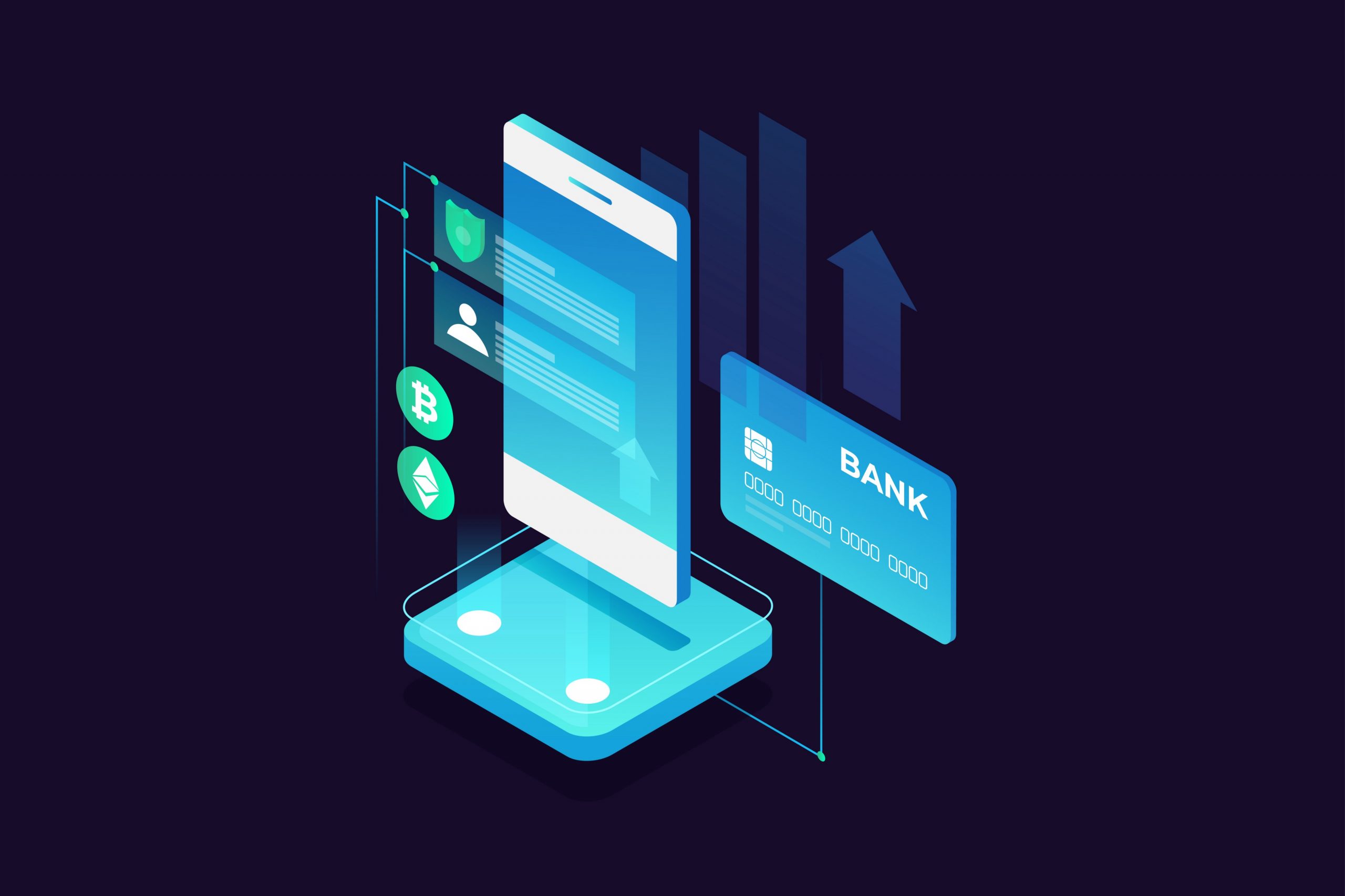
On the one hand, blockchain technology is already seeing widespread adoption in various banks around the world. The decentralized, tamperproof, digital technology presents an ideal use case for financial service providers needing to keep detailed records. Moreover, the practical applications of cryptocurrencies also bring significant added value to the sector. Being able to transfer wealth across international boundaries without any significant delay is a massive improvement over legacy remittance systems like SWIFT.
On the other hand, however, some banks instead view blockchain technology and cryptocurrencies as threats to their existing business models. Philosophically speaking, cryptocurrencies seek to remove the need for traditional banks altogether. Removing the financial middleman, or the bank is a central tenet when it comes to decentralized finance. Some even suggest that, by extension, this shift towards banking and crypto could render traditional banks unnecessary. With that said, however, most observers realize that banks, digital banking, and crypto can all coexist, playing slightly different roles. Traditional banks are more trust-driven, and talking to a physical bank person can instill a sense of personal confidence. Digital banking gives people more ready access to the financial services that one would typically manage at a bank. Cryptocurrencies and DeFi aim to democratize finance completely and supersede traditional banks – but they can also seem more complex to manage.
Bridging the Old and New Economy
Banks that want to remain competitive in the era of digital banking and cryptocurrencies, then, need to adapt. Specifically, they can retain their relevance by bridging the old and new economy. Organizations that refuse to move with the times are destined to become irrelevant and lose their competitiveness. Granted, cryptocurrencies like Bitcoin have seen growing acceptance in the past years. Nevertheless, financial institutions generally regarding cryptocurrencies like Bitcoin and its ilk with skepticism. The cryptocurrency market’s relatively high volatility is something that is generally welcomed by retail investors.

Nevertheless, cryptocurrencies’ boom and bust cycles – exemplified by Bitcoin’s 2021 bull run and Ethereum’s 2021 bull run – deter bank adoption. Financial service providers – like banks – value relative stability. Price stability, for example, reduces the relative uncertainty associated with the future and helps companies navigate, plan future investments, and structure their holdings. Explosive and uncertain asset appreciation, as seen with assets like Bitcoin, Ethereum, and even Dogecoin during the past six months, makes planning hard.
Nevertheless, most banks still recognize the innovative and revolutionary potential brought about by the advent of cryptocurrencies. As such, they want a way to take advantage of certain cryptocurrency characteristics, such as instantaneous cross-border transfers while avoiding price volatility. The answer to this question is something known as ”stablecoins”. Stablecoins are essentially cryptocurrencies that are tied to a basket of other, less volatile assets. Perhaps the most well-known example of this is stablecoins that are tied to fiat currencies, such as Tether (USDT) or Coinbase’s official stablecoin, USD Coin (USDC).
Stablecoins represent popular mechanisms for bridging the old and new economy, as in traditional banks and cryptocurrencies. In addition to the aforementioned fiat currency-backed stablecoins, there are also crypto-backed stablecoins, stablecoins with uncollateralized stabilization, and even stablecoins pegged to resources.
Demand for Regulated Entities
Another example of a popular bridge function between the old and new economy is the emergence of financial tracking instruments. Essentially, these allow investors who want to get exposure to cryptocurrencies to invest in a stock exchange-traded cryptocurrency tracker. Institutional investors have long called for the emergence of a ”Bitcoin ETF”, or Bitcoin Exchange-Traded Fund. An exchange-traded fund allows investors to get significantly more exposure to an asset without physically buying the asset itself. This is true whether the asset in question is gold, petroleum, or cryptocurrencies.
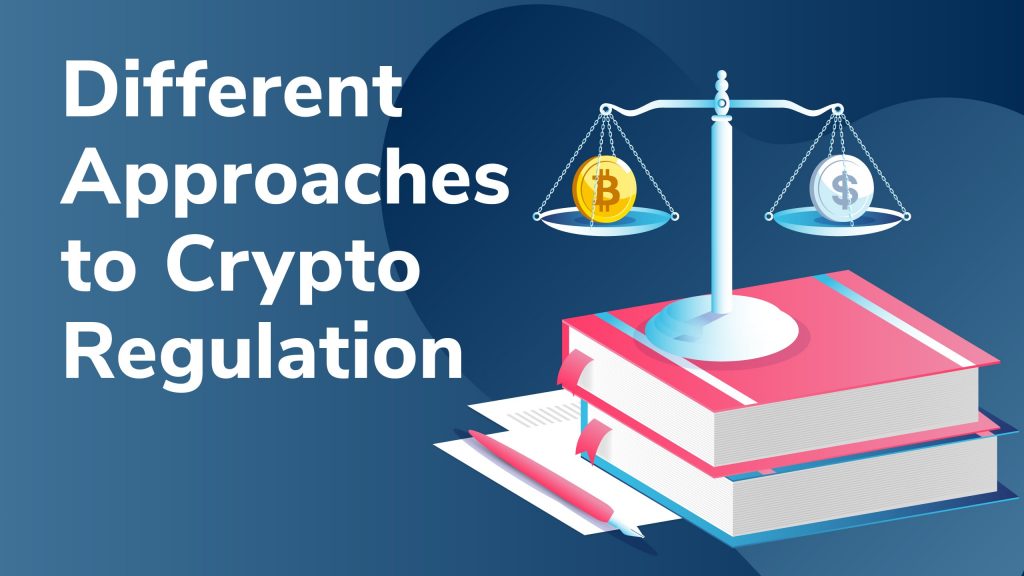
At the moment, there is a lot of regulatory uncertainty regarding cryptocurrencies. This is also something that deters widespread adoption of cryptocurrencies. Specifically, seeing as the regulatory landscape is currently murky and unclear, many may be hesitant to enter the cryptocurrency market. As such, professional investors look for regulated entities – such as cryptocurrency-compatible banks – to interact with the cryptocurrency market. This can include e.g. trading, storing or exchanging different cryptocurrencies. Consequently, banks that are ready to work with cryptocurrencies have a clear niche cut out for them. What’s more, there is a vast intersection of the new and old economy where cryptocurrency-friendly banks stand ready to excel.
For example, institutional players will likely need to partner with an audited partner in order to access the cryptocurrency markets on a broad scale. This could e.g. be for getting pension investment exposure towards the cryptocurrency market. Moreover, there are still a lot of people who appreciate the ability to get personal advice from a bank. Specifically, this includes questions over portfolio allocation or financial consulting. All in all, this highlights that there’s still room for banks in the new economy – as long as banks are ready to change with the times and accommodate shifting sentiment.
SEBA – The Bank for the New Economy
One of the banks that recognize the importance of bridging the old and new economy is SEBA Bank. Specifically, SEBA Bank is a FINMA-licensed Swiss bank that aims to provide a bridge between digital and traditional assets. As such, SEBA stands ready to work with the advent of cryptocurrencies and decentralized finance (DeFi). This is reflected in SEBA’s tagline, which is ”the bank for the new economy”.

SEBA Bank strives to support a variety of different cryptocurrency tokens. As recently as May 3rd, 2021, SEBA Bank announced support for Synthetix, Uniswap, and Yearn Finance and all their respective tokens. However, this is just the tip of the iceberg. SEBA Bank already had support for six other cryptocurrencies, and subsequently has a comprehensive DeFi offering.
Anyone looking to explore how banks can work together with digital banking and the growing use of cryptocurrencies should therefore look no further than SEBA Bank. It is hard to talk about the future of digital banking without talking about cryptocurrencies. As such, it makes a lot of sense for banks to start looking into ways they can work with the burgeoning crypto field, rather than how to resist it. If you are also looking for a bank to help you with the transition to the new economy, check out SEBA Bank’s offering and whether it is something for you!
Summary of Digital Banking in the New Economy
Banking is changing rapidly. The past few decades have seen digitalization take virtually all sectors by storm, and banking is also shifting online. However, the advent of cryptocurrencies and blockchain technology presents yet another paradigm shift for the banking industry. Decentralized finance (DeFi) has the potential to bring financial services to millions of unbanked people, without access to traditional financial infrastructure. What’s more, cryptocurrencies like Bitcoin are revolutionizing cross-border remittances.
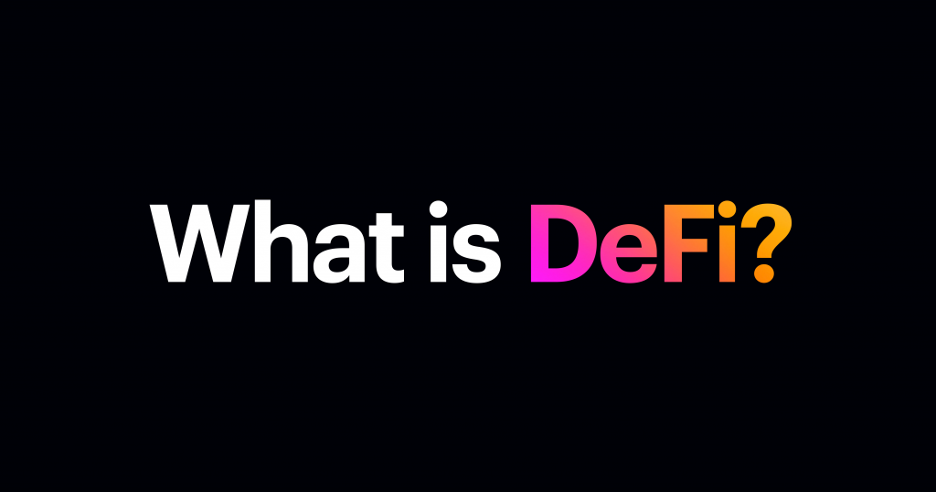
True, some banks are skeptical of the emergence of cryptocurrencies. Albeit misguided, this skepticism is nonetheless understandable. Every major technological shift is met with reluctance. However, just like banks that resisted the shift towards digital banking a decade ago have already fallen behind, so will banks that refuse to acknowledge cryptocurrencies’ growing importance in finance.
As such, it is essential that some banks understand the potential brought about by blockchain technology and leverage it. SEBA Bank aims to provide such a touchpoint for consumers. In combining the best of traditional banking (the ”old” economy) with cryptocurrencies (the ”new” economy), SEBA Bank strives to provide the best of both worlds to customers. If you want to learn more about finance or blockchain technology in general, be sure to check out Ivan on Tech Academy.
Ivan on Tech Academy is the premier online blockchain academy and provides dozens of in-depth cryptocurrency courses. If you want to learn more about blockchain and Bitcoin or Ethereum, look no further! Join over 30,000 existing students today, sign up for the Academy, and check out sebaversity.swiss! What are you waiting for?
